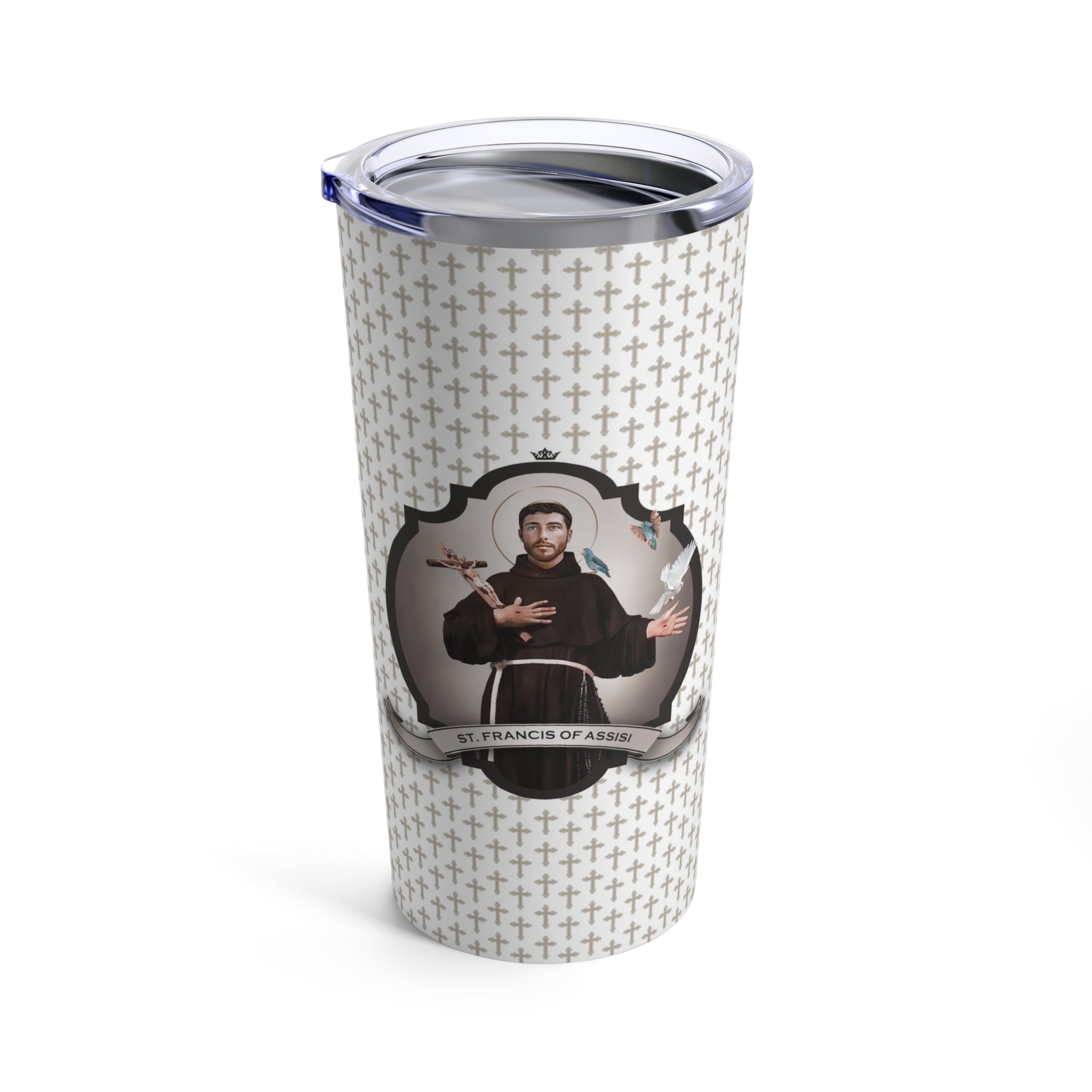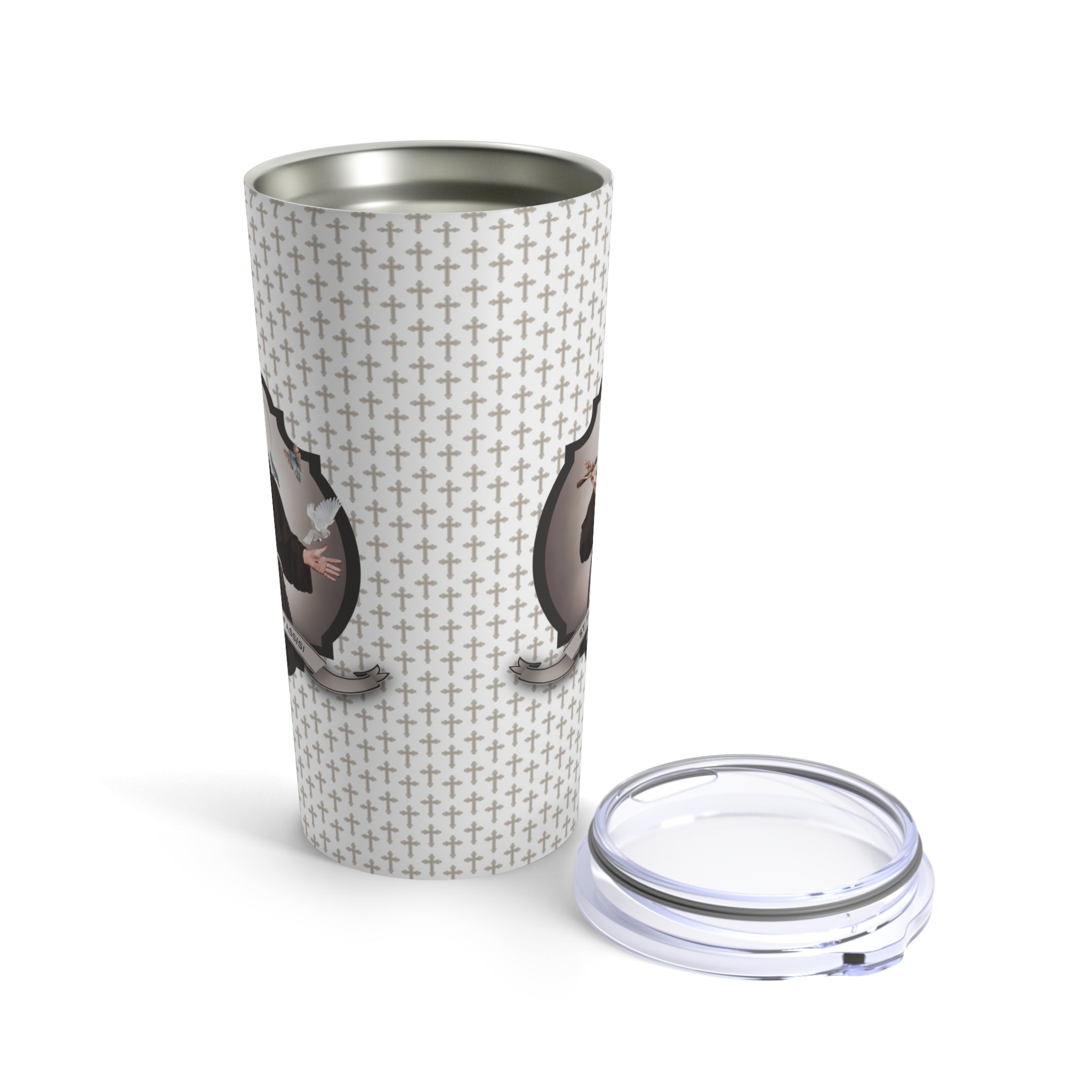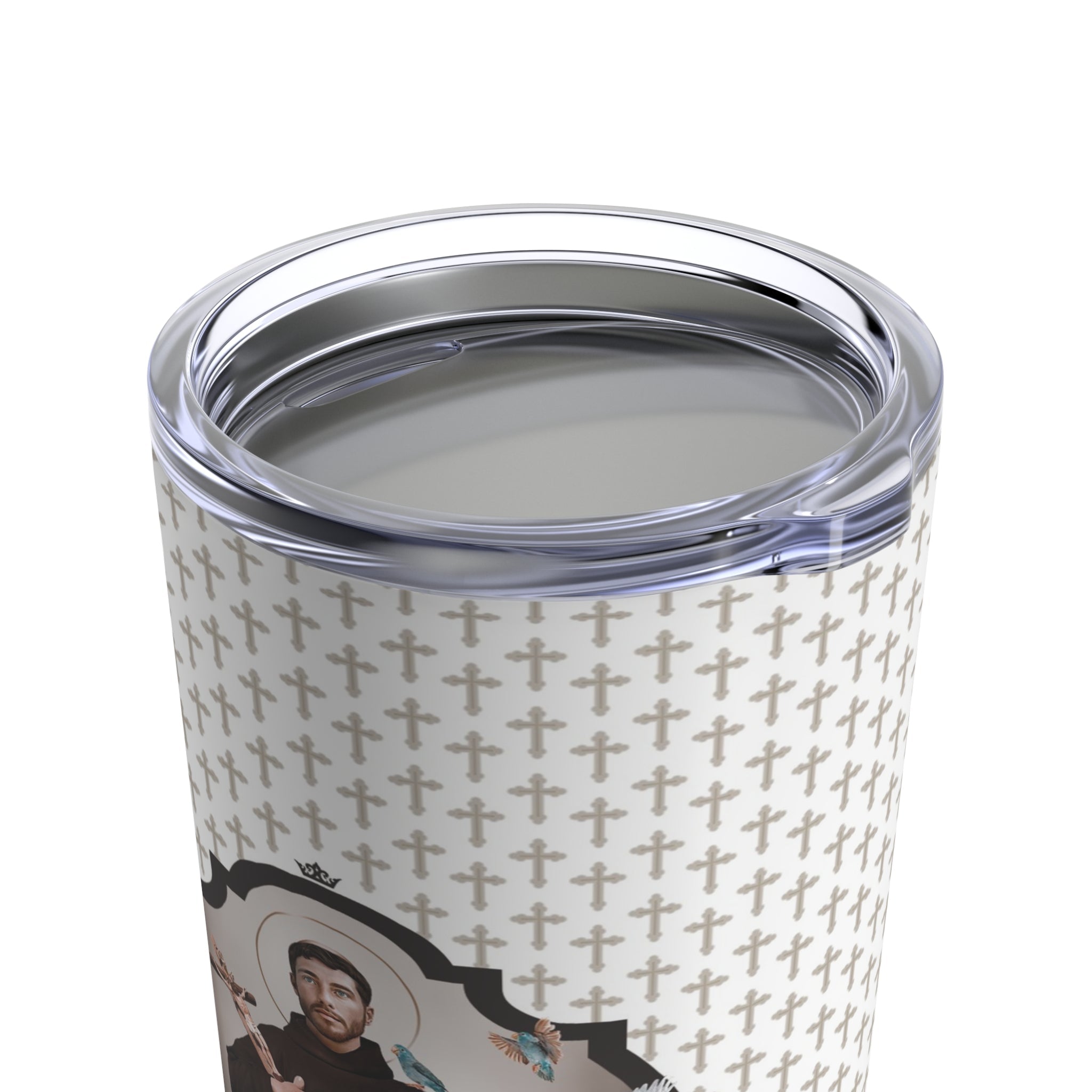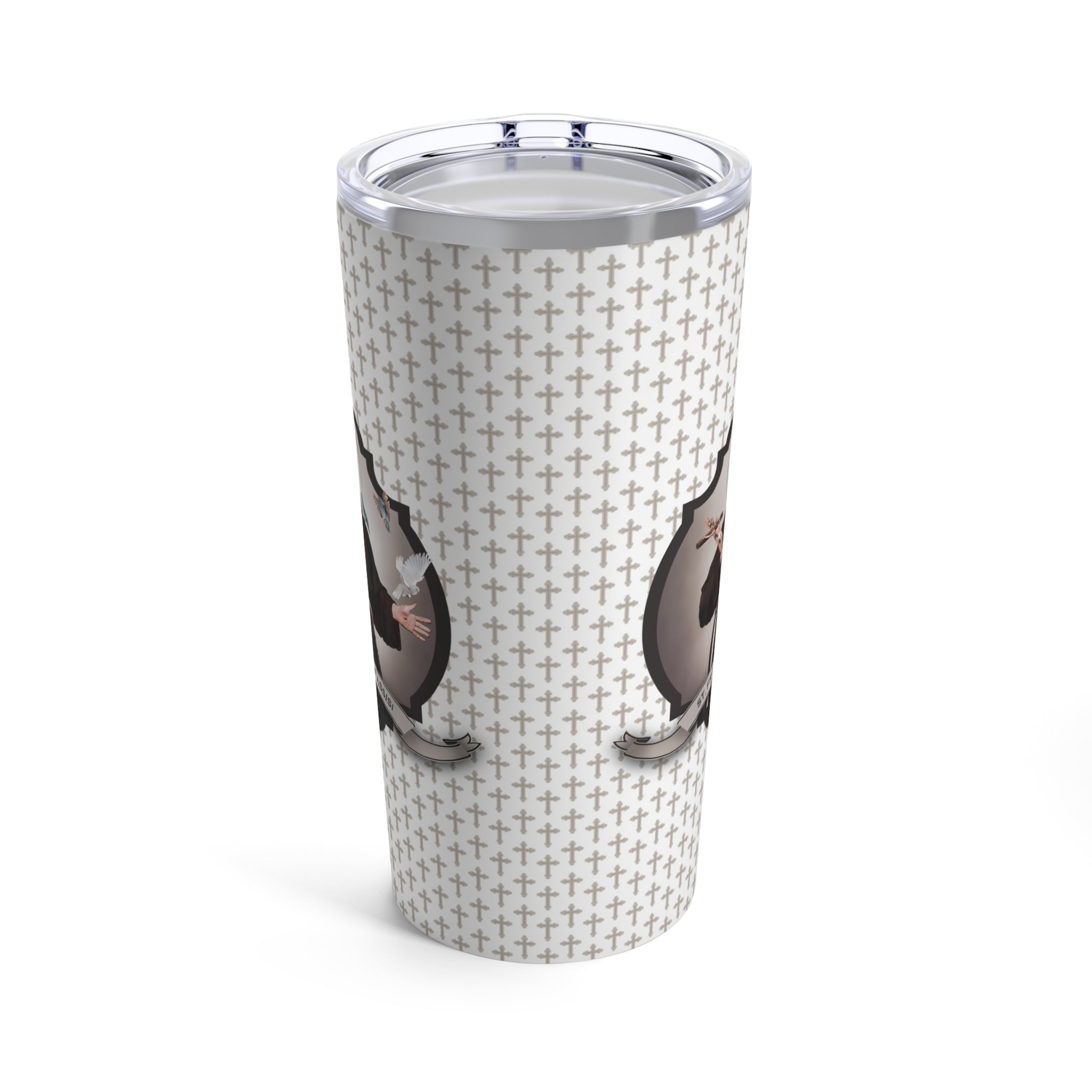



St. Francis of Assisi Tumbler 20 oz.
The St. Francis of Assisi Tumbler will keep your coffee hot or your refreshments cold while you are on the go. The 20 oz. tumbler is made of stainless steel and features a glossy exterior finish and a see-thru plastic lid with a suction seal. The perfect travel companion for the car, office, school or outdoor event. Makes a truly unique and practical gift!
■ Stainless Steel
■ Dishwasher Safe

This is a couture item which is custom made-on-demand. Our couture collections feature exclusive, custom designs with our signature crown somewhere within the design. Not sold in stores and you won’t find this anywhere else. EXCLUSIVELY AT VENXARA.
Shipping + Delivery
This custom made-on-demand Tumbler ships world-wide directly from our producers in Georgia, USA. Destination tracking is available for most countries. A tracking number will be emailed to you once your order has shipped.
Production Time: 2-5 days
Ship Time: 5-12 days
Please Note: During peak shopping seasons, production and ship time may take a little longer than normal. If you are buying this item as a gift, please order as early as possible. We don't want to disappoint you or the gift recipient with a potentially delayed order.
For countries where tracking numbers are not available, this item should arrive by regular post within 2-4 weeks. Orders that have not arrived within 45 days of order processing are eligible for a free reshipment or a refund.
About St. Francis

ST. FRANCIS OF ASSISI
1181 — 1226
Feast Day October 4
Patron Saint of Italy, animals, birds, merchants, ecology and ecologists, stowaways and the Franciscan Order.
Francis was the Italian deacon who brought renewal to the Church through his decision to follow Jesus' words as literally as possible.
Born in the early 1180s, Francis was one of several children born to the wealthy merchant Pietro Bernardone and his wife Pica. He originally received the name Giovanni (or John), but became known as Francesco (or Francis) by his father's choice.
Unlike many saints, Francis was neither studious nor pious in his youth. His father's wealth gave him access to a lively social life among the upper classes, where he was known for his flashy clothes and his readiness to burst into song. He attracted to himself a whole retinue of young people addicted to evil and accustomed to vice. Francis himself said, "I lived in sin" during that time. He aspired to great military feats in his youth and fought in a war with a rival Italian city-state.
A period of imprisonment during that conflict turned his mind toward more serious thoughts, as did a recurring dream that suggested his true “army” was not of this world. He returned to Assisi due to illness in 1205, and there began a life of voluntary poverty.
Three major incidents confirmed Francis in this path. In Assisi, he overcame his fear of disease to kiss the hand of a leper. Afterward, he made a pilgrimage to Rome, where he deposited his money at Saint Peter's tomb and exchanged clothes with a beggar. Soon after he returned home, Francis heard Christ tell him in a vision: “Go, Francis, and repair my Church, which as you see is falling into ruin.”
Francis began to use his father's wealth to restore churches. This led to a public quarrel in which the cloth-merchant's son removed his clothing and declared that he had no father except God. He regarded himself as the husband of “Lady Poverty,” and resolved to serve Christ as “a herald of the Great King.”
During the year 1208, the “herald” received the inspiration that would give rise to the Franciscan movement. At Mass one morning, he heard the Gospel reading in which Christ instructed the apostles to go forth without money, shoes, or extra clothing. This way of life soon became a papally-approved rule, which would attract huge number of followers within Francis' own lifetime.
Francis practiced true equality by showing honor, respect, and love to every person whether they were beggar or pope. Francis' brotherhood included all of God's creation. Much has been written about Francis' love of nature but his relationship was deeper than that. We call someone a lover of nature if they spend their free time in the woods or admire its beauty. But Francis really felt that nature, all God's creations, were part of his brotherhood. The sparrow was as much his brother as the pope.
Through his imitation of Christ, Francis also shared in the Lord's sufferings. He miraculously received Christ's wounds, the stigmata, in his own flesh in 1224. His health collapsed over the next two years, a “living sacrifice” made during two decades of missionary preaching and penance.
Years of poverty and wandering had made Francis ill. When he began to go blind, the pope ordered that his eyes be operated on. This meant cauterizing his face with a hot iron.
Francis never recovered from his illness. He died on October 4, 1226 at the age of 45. Francis is considered the founder of all Franciscan orders and San Francisco, California was named after him.
Choose options




